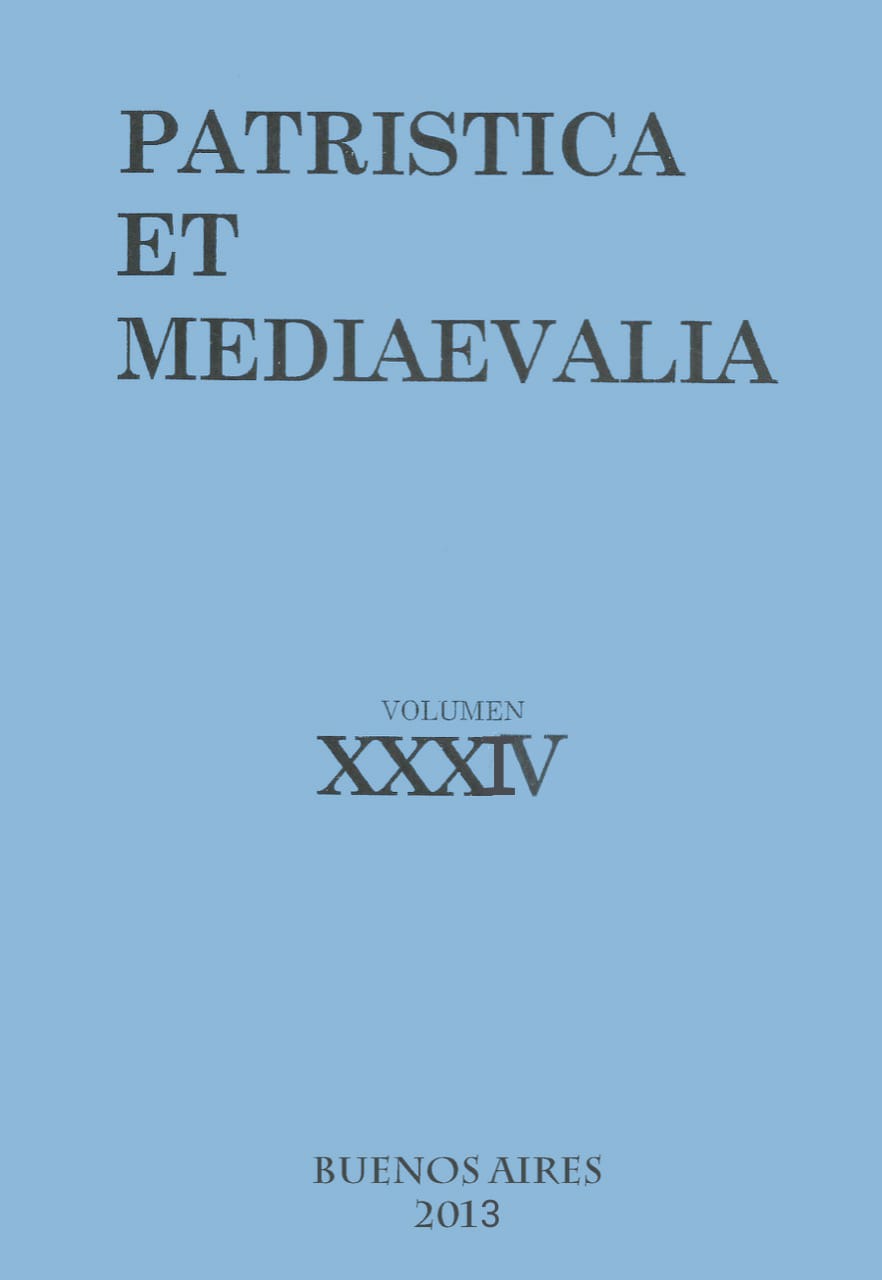The influence of the Stoicism in Abelard: the Notion of consensus
Abstract
Medieval thinkers have been inspired by different ancient philosophical theses, which they have partially modified and adapted to their Christian belief. Abelard is certainly no exception, since he has been under the most various pagan influences of his time without abandoning his own religious convictions. Abelard's philosophy consists mainly of ancient borrowings, which come more often from indirect sources. The authority of Plato and Aristotle is obvious in almost all philosophical topics developed by Abelard. It is however more less known that Stoicism has also played an important role in his thought; especially in ethics with notions like consensus or actions morally indifferent. Stoic physics has also influenced his moral doctrine with the concept of affinity or preservation, which refers to a certain innate capacity in man to observe the natural law and, before the advent of Jewish and Christian laws, to progress toward his own salvation. Finally the famous precept dear to all Stoics of living in agreement with nature has received a favourable reception in Abelard's ethics, as well as the attitude of serene detachment, which he has encouraged in its Plantus. In the present paper, the objective is to expound the influence of the Stoic’s notion of assent, or its equivalent consent (consensus), on Abelard’s ethics, which serves him as a fundamental component to define moral trespass. More specifically, we first see Abelard's definition of sin, found in his Ethica, which presents a decisive step in clarifying what really constitutes this notion in the history of ideas. We examine after that the main usages made by the Stoics of the term assent. we can then realize that the passage of this Stoic concept from the epistemological sphere to the ethical has been recuperated by some Latin authors like Augustine, who uses the term in both areas, and later by Abelard himself, who restricts its usage to ethics by using instead consensus. We finally arrive at the conclusion that Abelard's ethics has not only been influenced by the most notable religious and philosophical thinkers, like Plato, Aristotle, Jerome and Augustine, but also by some Stoic philosophers, who were relatively unknown at the time and sometimes accessible only by some obscure intermediaries.Downloads
References
Abélard. (1993). Conférence/Dialogue d’un philosophe avec un juif et un chrétien. Connais-toi toi-même/Éthique. Introduction, traduction et notes par Maurice de Gandillac. Les Éditions du Cerf: Paris.
Black, D. L. (1998). Logic in Islamic Philosophy. Routledge Encyclopaedia of Philosophy. General Editor Edward Craig, Consultant Editor Luciano Floridi.
Black, D. L. (1998). Aesthetics in Islamic Philosophy. Routledge Encyclopaedia of Philosophy. General Editor Edward Craig, Consultant Editor Luciano Floridi.
Blomme, R. (1958). La doctrine du péché dans les écoles théologiques de la première moitié du XIIe siècle. Louvain/Gembloux: Presses universitaires de Lovain/Éditions J. Duculot.
Colish, M. L. (1985). The Stoic Tradition From Antiquity to The Early Middle Ages. II. Stoicism in Christian Latin Thought Through the Sixth Century. Leiden: Brill, 142-238.
De Gandillac, M. (1975). Intention et loi dans l’éthique d’Abélard. In Pierre Abélard. Pierre le Vénérable. Les courants philosophiques, littéraires et artistiques en Occident au milieu du XIIe siècle. Actes et mémoires du colloque international, Abbaye de Cluny, 2 au 9 juillet 1972. Paris: Éditions du Centre national de la recherche scientifique, 585-610.
Gaffiot, F. (1934). Dictionnaire illustré Latin-Français. Librairie Hachette: Paris.
Inati, S. C. (1988). Epistemology in Islamic Philosophy. Routledge Encyclopaedia of Philosophy. General Editor Edward Craig, Consultant Editor Luciano Floridi.
Sandbach, F. H. (1971). Ennoia and prolepsis in the Stoic Theory of Knowledge. In Long, A. A. (ed). Problems in Stoicism. Londo: The Athlone Press/University of London, 22-37.
Lalande, A. (1980). Vocabulaire technique et critique de la philosophie. 13e édition. Paris PUF.
Lapidge, M. (1992). The Stoic Inheritance. In Dronke, P. A History of Twelfth-Century Western Philosophy. Cambridge: Cambridge University Press, 81-112.
Long, A. & Sedley. D. (2001). Les philosophes hellénistiques. Tome 1: Pyrrhon - L’Épicurisme; Tome 2: Les stoïciens; Tome 3: Les académiciens - La renaissance du pyrrhonisme. Traduction par Jacques Brunschwig et Pierre Pellegrin. Paris: GF Flammarion.
Luscombe, D. E. (ed) [1971]. Peter Abelard’s Ethics. Oxford: Clarendon Press.
Marenbon, J. (1977). The Philosophy of Peter Abelard. Cambridge: Cambridge University Press.
Pembroke, S. G. (1971). Oikeiosis. In Long, A. A. (ed). Problems in Stoicism. Londo: The Athlone Press/University of London, 114-149.
1. The authors who publish in this magazine accept the following conditions:
-
They retain the copyright and grant to the magazine the right of the first publication, with the work registered under the Attribution-ShareAlike 4.0 International License that allows third parties to use what is published as long as they mention the authorship of the work and the first publication in this magazine.
-
They can make other independent and additional contractual agreements for the non-exclusive distribution of the version of the article published in this magazine (eg. include it in an institutional repository or publish it in a book) provided that they clearly indicate that the work was first published in this journal.
-
They are allowed and recommended to publish their work on the Internet (for example on institutional or personal pages).
2. AutoArchive Conditions. Authors are allowed and encouraged to distribute post-print electronic versions of their manuscripts because it promotes their circulation, a possible increase of quotation and a major reach among the Academic community. Color RoMEO: blue.













